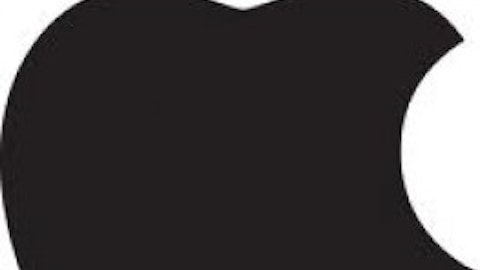It is clear that Nokia’s future depends on its Lumia smartphones and its budget smartphones. CEO Stephen Elop recently talked about competition and said that the smartphone industry is not about the latest technology anymore; its about making lives easier and better, a place where the Lumia can excel in the future.
In terms of financial growth, Nokia still looks solid even after reporting losses in the previous quarters. The company finally showed a positive net income in the latest earnings report. Cancelling out the dividends doesn’t mean that the company is in trouble, it means that Nokia is finally trying to improve its cash flow position and smoothen its future investment expenditures. Apple, after so much controversy, might finally improve its dividend payout and the company has over $137 billion in cash. So given Nokia’s current situation, you just cannot argue on the company’s current dividend policy.
Also, Nokia’s entry into several countries will be crucial for an increase in global market share. Nokia has already taken steps to take things to the next level in places like South Africa, Russia, and India. Nokia’s Windows smartphones have already been well received in these countries, and with a huge population and massive fan base, these countries can help the company get a decent market share by 2014.
What’s missing?
Even after releasing the premium Lumia smartphones and satisfying low-budget consumers with the Asha series, there is still something that is missing. Yes, a tablet. You can read hundreds of rumors that Nokia is planning to release a Windows tablet soon; however, all these rumors went flat after the company said that it has no plans to release a tablet this year.
A lot of manufacturers, including BlackBerry, Samsung, and Apple have their own tablets and Nokia just cannot miss this. The tablet industry is huge and its already taking over the PC industry. The industry has shown significant growth in the last three years and 2012 saw a 78% growth in tablet sales. This profitable growing industry is just too big to miss as more and more manufacturers are entering into the tablet wars.
Apart from tablets, phablets (smartphone+tablet) is also a growing segment, a place where Nokia can capitalize in the future. Samsung, Huawei, and LG have already released some phablets, and they have been quite successful.
Like Apple and BlackBerry, Nokia’s premium smartphones are generally in the same size category, and Nokia needs to release something different in order to attract more customers. Even if Nokia sticks with Windows, I believe it can easily become a hit. Who wouldn’t want to try out a 5.5 inch Nokia Windows OS Lumia Phablet?
Conclusion
At the moment, Nokia is still struggling in the smartphone industry but this doesn’t mean that the company is not on the right track. The second generation of the Lumia line has been received better than expected, and the company expects a double digit share by 2014.
If Nokia fails to release a phablet, a tablet, or something different for premium consumers, then I just don’t see it happening for the company, no matter how confident the management is. Microsoft’s updates for the upcoming Windows OS will also be crucial, and who knows if Microsoft Corporation (NASDAQ:MSFT) can ditch the tiles for something really unique and creative. 2013 might finally be the year when Apple’s dominance declines if people get fed up of Apple’s same old User Interface: a place which Windows OS will try to capture.
Even though I’m not very impressed by Nokia’s current lineup, I still believe that investors looking for long-term gains should definitely consider Nokia for their portfolio. In fact, I would prefer Nokia over BlackBerry as this is a do or die situation for BlackBerry, and it might be a risk which just isn’t worth taking.
After a 30% decline, this might be the best time to buy Nokia at a very “cheap” price, because Nokia is just too big a company to fail in the tech sector, and cannot miss out the factors needed to get back on top, again.
Yasir Idrees has no position in any stocks mentioned. The Motley Fool recommends Apple. The Motley Fool owns shares of Apple.


